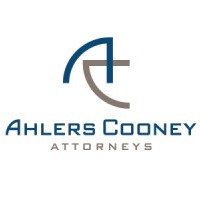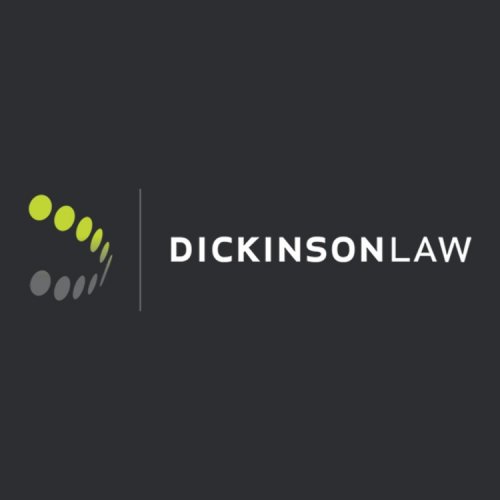Best Structured Finance Lawyers in Des Moines
Share your needs with us, get contacted by law firms.
Free. Takes 2 min.
List of the best lawyers in Des Moines, United States
About Structured Finance Law in Des Moines, United States
Structured finance refers to complex financial instruments offered to borrowers with unique needs that traditional lending cannot satisfy. Common tools include asset-backed securities, mortgage-backed securities, collateralized debt obligations, and other structured products. In Des Moines, structured finance is instrumental for banks, corporations, insurance companies, agricultural businesses, and real estate developers seeking alternative funding and tailored risk management options. The regulatory environment in Des Moines is influenced by both federal and Iowa state laws, requiring careful navigation and legal expertise.
Why You May Need a Lawyer
Structured finance involves highly technical, multi-layered transactions that carry significant legal and financial implications. You may need a structured finance lawyer if you:
- Are originating or investing in asset-backed or mortgage-backed securities
- Operate a financial institution needing guidance on regulatory compliance
- Are structuring complex transactions for commercial real estate, agriculture, or corporate assets
- Face disputes or litigation concerning structured financial products
- Need assistance in negotiating, drafting, or reviewing structured finance agreements
- Require advice on risk retention, due diligence, and disclosure requirements
- Are subject to federal and Iowa state securities laws assessments
- Need to understand the impact of federal reforms or updates in the financial sector
Consulting a lawyer ensures your transactions are compliant, enforceable, and designed to mitigate risks.
Local Laws Overview
Des Moines adheres to a combination of federal structured finance regulations and specific state-level laws. Key aspects include:
- Uniform Commercial Code (UCC): Iowa’s adaptation of the UCC governs security interests, collateral, and enforcement for structured finance transactions.
- Iowa Securities Act: This act covers the offering and sale of certain securities, with implications for many structured finance transactions in the state.
- Banking and Insurance Regulations: Given Des Moines’ status as a hub for financial and insurance companies, state regulatory agencies often oversee large-scale structured transactions for industry compliance.
- Federal Regulatory Framework: SEC rules, Dodd-Frank requirements, and federal agency guidelines apply, especially regarding asset-backed securitization, risk retention, reporting, and disclosure.
- Tax Considerations: Both federal tax code and Iowa state tax provisions may influence the structuring and taxation of complex financial products.
Due to the intersection of these authorities, parties must ensure all components of a transaction are locally and federally compliant.
Frequently Asked Questions
What types of transactions are considered structured finance?
Structured finance transactions include asset-backed securities, mortgage-backed securities, collateralized loan obligations, and tailored solutions for commercial enterprises needing non-traditional funding.
How is structured finance regulated in Des Moines?
Regulation falls under both federal law, primarily enforced by agencies like the Securities and Exchange Commission, and Iowa state laws such as the UCC and the Iowa Securities Act.
Who typically uses structured finance services?
Large corporations, banks, insurance companies, real estate developers, and agricultural businesses most commonly use structured finance to manage risk and access capital.
What are the main legal risks in structured finance?
Misrepresentation, non-disclosure, improper collateralization, and non-compliance with securities laws are some of the main legal risks associated with structured finance.
Can individuals or small businesses participate in structured finance?
Structured finance is usually intended for institutional participants due to complexity, high minimum thresholds, and regulatory requirements, though smaller participants may indirectly be involved through pooled investments.
What is the role of the Uniform Commercial Code in these transactions?
The UCC governs the creation, perfection, and enforcement of security interests in collateral, which forms the foundation of many structured finance deals in Iowa.
Do I need legal representation to complete a structured finance transaction?
Yes. These transactions involve complex documentation, nuanced regulatory requirements, and significant financial exposure, making experienced legal counsel essential.
How does Iowa’s regulatory environment differ from other states?
Iowa has its own security and commercial codes and is known for its proactive regulation of insurance and banking, given the dominant role these industries play in Des Moines’ economy.
What kind of disputes arise in structured finance?
Common disputes include contract interpretation, default enforcement, misrepresentation claims, priority disputes among creditors, and compliance investigations.
Is mediation or arbitration available for structured finance conflicts?
Yes. Many contracts include mediation or arbitration clauses, and courts may direct parties to alternative dispute resolution before litigation.
Additional Resources
If you need more information or support regarding structured finance in Des Moines, consider reaching out to these resources:
- Iowa Division of Banking - Regulates state-chartered banks and financial institutions
- Iowa Insurance Division - Oversees insurance industry transactions, including some structured finance activities
- Iowa Department of Commerce - Contains information on securities laws and business regulations
- Securities and Exchange Commission - Provides federal guidance on structured finance transactions
- American Bar Association - Business Law Section offers publications and best practice guides
- Local Des Moines law firms specializing in financial services or corporate law
Next Steps
If you are considering, negotiating, or facing issues with a structured finance transaction in Des Moines, your best course is to:
- Gather all relevant documents, transaction details, and correspondence
- Identify your goals, risks, and specific concerns related to the deal
- Research and contact local attorneys experienced in structured finance and securities law
- Schedule a consultation to discuss your particular needs and receive tailored legal guidance
- Stay informed on both state and federal legal developments impacting your operations or investments
Taking these steps will help you protect your interests, ensure regulatory compliance, and achieve your financial objectives in Des Moines’ structured finance market.
Lawzana helps you find the best lawyers and law firms in Des Moines through a curated and pre-screened list of qualified legal professionals. Our platform offers rankings and detailed profiles of attorneys and law firms, allowing you to compare based on practice areas, including Structured Finance, experience, and client feedback.
Each profile includes a description of the firm's areas of practice, client reviews, team members and partners, year of establishment, spoken languages, office locations, contact information, social media presence, and any published articles or resources. Most firms on our platform speak English and are experienced in both local and international legal matters.
Get a quote from top-rated law firms in Des Moines, United States — quickly, securely, and without unnecessary hassle.
Disclaimer:
The information provided on this page is for general informational purposes only and does not constitute legal advice. While we strive to ensure the accuracy and relevance of the content, legal information may change over time, and interpretations of the law can vary. You should always consult with a qualified legal professional for advice specific to your situation.
We disclaim all liability for actions taken or not taken based on the content of this page. If you believe any information is incorrect or outdated, please contact us, and we will review and update it where appropriate.













